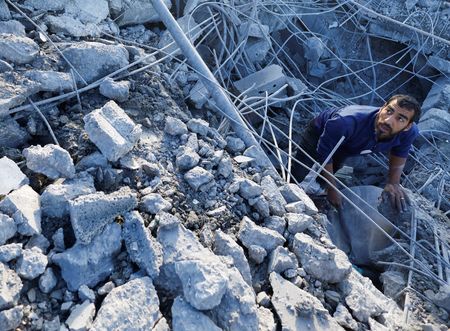ROME (Reuters) – Italy’s Prato is a key industrial centre for the country but this has led the area to become a crossroads for business and criminals, where the exposure of workers to exploitation and violence is rising exponentially, a local prosecutor said.
The Tuscan city is home to one of the largest concentrations of Chinese-run businesses in Europe, making clothes and accessories bearing the prized “Made in Italy” label for the world’s largest fashion and luxury groups.
“It’s a reality that has created the grounds for infiltration by Mafia-type associations, both Italian and foreign,” Prato head prosecutor Luca Tescaroli wrote in reply to a questions in parliament seen by Reuters.
The magistrate said investigations also unveiled corruption between local police and entrepreneurs and payment services from which criminal organisations benefited.
Prato and the surrounding area is “characterized by a criminal complexity and danger” which has worsened in the past year and would require more police and magistrates, he added.
Over the years the area has seen a series of police raids and criminal investigations into the alleged use of illegal immigrants and failure to follow basic labour and safety rules.
Since 2023 there have also been several cases of aggression towards exploited workers, mostly Pakistani, who have been protesting for better working conditions, Tescaroli wrote, adding many had been “brutal aggressions”.
The prosecutor’s office has recently opened an investigation into alleged labour exploitation, aggravated injuries and threats after four people were injured by a hooded group wielding iron bars, while they were protesting outside five fashion workshops.
“The complex and articulated investigations confirm the pathological aspects” of labour exploitation exposing sweatshop-like conditions with 13-hour days and very few breaks, seven days a week, with wages of no more than three euros per hour, in precarious safety conditions, he wrote.
(Reporting by Silvia Ognibene in Florence and Giulia Segreti in Rome; editing by David Evans)








